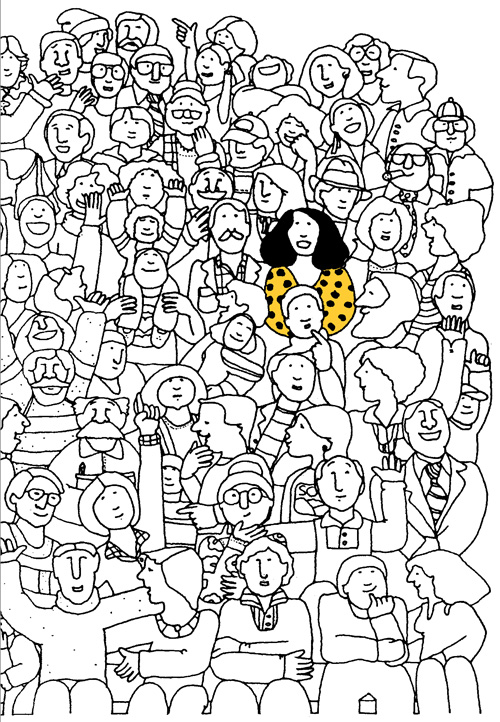↑How to Overcome Fear
Fear slows progress toward our goals, but there are things we can do about it! ⇔
by Michael Krigline, March 21, 2020. wp.krigline.com ⇔
Adapted from a weekend talk given to adult students in China, March 2015.
Fear is no laughing matter. It can cripple us, make us sick, and rob us of joy. There are many things in life that we should have a healthy fear of (from the current COVID-19 virus, to common fears for those learning a foreign language), but the impact of fear is interest on a debt we do not owe! I hope the following thoughts will help you deal with fear in a healthy way.
In one of my favorite fantasy stories, some British children magically find themselves in Narnia, in great need of help from someone named Aslan. Suddenly they discover that Aslan is a huge lion, not a man, and this makes them quite afraid. The oldest sister says to a “local” (female beaver): “Is he safe? I shall feel rather nervous about meeting a lion.” I love the beaver’s reply: “That you will, dearie, and no mistake! If there’s anyone who can appear before Aslan without their knees knocking, they’re either braver than most or else just silly.” (The Lion, the Witch and the Wardrobe; p75, Collier Books 1970 ed)
“Fear is not a sign of weakness…”
I start with this quote because it emphasizes that “fear” is a normal, natural thing that we all face. Fear is not a sign of weakness, and thus our inability to handle fear should not make us feel guilty or inferior. Sometimes, fear is even “good”; when you see a lion, you should feel afraid, and this healthy fear can help us avoid danger. But too much fear is not a good thing. Some people claim to be, or appear to be, without fear—and we marvel at them. As the “local” said, sometimes these people really do have remarkable courage, but sometimes they just don’t understand the danger they face. But ignorance is not the solution to the problem of fear. And if you do not feel “braver than most,” then I hope today’s Weekend Talk will teach you practical truths to help you overcome your fears.
Last week, Luke started out this year’s Weekend Talk series with a wonderful speech about how to have a good year. He said three things are important: (1) We need to move from passivity to activity. (2) We need to learn to choose between good and great. And (3) we must move from fear to faith. To me, that speech highlights how important today’s topic is. “Overcoming fear” is one of the three most important things you can do to have a GREAT year!
Fear’s effects, degrees and causes
According to Medical Ambassadors International, our fears can even harm our health in many ways. Sometimes, fear leads to physical reactions, such as headaches or feeling sick to one’s stomach. We can also have psychological reactions, such as that paralyzing affect that keeps us from getting any work done. We end up like a car spinning its wheels in mud or on ice, working hard but not going anywhere. Too much fear also has social consequences; our worries hinder inter-personal relationships, and our fears can make us defensive when questioned.
Since fear can be good or bad, then obviously fear comes in degrees. The fears that help us avoid danger can be strong, but they can also be irrational. It is healthy to fear a snake while hiking outdoors; it is irrational to fear a snake that is in a glass box, unable to reach you. Similarly, many of our worries are a rather weak and harmless form of fear, but at its strongest end, fear can paralyze us, create an intense urge to run away, or even make us want to end our own life. If you ever find yourself with such self-destructive levels of fear, please seek professional help or counseling. But even in its weaker forms, fear can cripple us, especially by taking away our ability to make intelligent choices.
What causes us to worry or fear? Whether we like it or not, “the news” can stir too much fear. It is good to be informed, but non-stop news outlets have to compete for ratings and fill airtime, even when there’s little “new” to say. Set a limit for yourself on how much “news” you’ll listen to or read, and “turn it off” when you feel fear rising in your heart. If your news source isn’t talking about the good things that companies, government and your neighbors are doing to help each other in a time of crisis, find a better news source! I like CBNnews.com because it gives lots of good news along with the bad, and because it helps build my faith instead of stoking my fears. Another source is the Good News Network.
Long ago, Jesus talked about common sources of fear: He asked, ‘Why are you anxious about your life, what you will eat or what you will drink, or about your body, what you will put on?’ (Matt 6:25) Two thousand years later, people are still worrying about these same things! Indeed, now we have advertisements that incite us to worry about our clothes and what we drink! They want us to fear the opinions of others; “Oh no, if I don’t drink this drink, or wear that kind of watch, people won’t like me, or respect me, or think I’m successful!” Advertisements are good when they give us useful information, such as details about a sale, but when we let them create unnecessary desires then they often add unnecessary worries to our lives.
“There are two common sources of fear: fear caused by others and fear that rises from inside ourselves. One thing you need while you wait for help is HOPE.”
External vs Internal Fear
There are two common sources of fear: things outside, and things inside; or put another way: fear caused by others and fear that rises from inside ourselves. External fears include threats from things like a virus/disease or threats from others, such as physical threats from someone stronger than you. Another external source of fear is conflict with others, such as emotional abuse that comes from a boss or parent. Another is a physical problem or limitation, such as situations caused by a handicap, age or illness. External fears relate to real or exaggerated threats from things that have the power to hurt you.
 If the source of a fear is external, you might simply need to run away (if you can). If there is a dangerous lion ahead, you need to turn around! If your doctor warns you to stop eating chocolate or peanuts, then stop. If experts say we all need to reduce contact with each other, to mitigate the spread of a new virus, then “Social distance for a time” is a good idea. Let this fear be a “good thing,” helping you to change your situation or your behavior.
If the source of a fear is external, you might simply need to run away (if you can). If there is a dangerous lion ahead, you need to turn around! If your doctor warns you to stop eating chocolate or peanuts, then stop. If experts say we all need to reduce contact with each other, to mitigate the spread of a new virus, then “Social distance for a time” is a good idea. Let this fear be a “good thing,” helping you to change your situation or your behavior.
But perhaps you can’t run away from your external source of fear, and there is nothing you can do about it. You need help. You need a savior. You need to be healed. But while you wait on external help to solve this external problem, there is one thing you need while you wait: that is hope. Hope is an internal confidence that things will get better. Hope is a positive attitude, based on inconclusive evidence. But in the end, hope is a choice you can make.
An example is the hope of a prisoner of war, who remains confident that his side will win the war and set him free. He can’t know “for sure” that his side will win, but his hope gives him the courage to endure hardship and pain. But to borrow from what Luke said last week, hope works better when you are active not passive. Prisoners of war are more likely to survive if they are actively helping, teaching, farming, or caring for those nearby who are “worse off” than they are. Hope, like love, does not follow mathematical rules, for the more you give hope away, the stronger your hope becomes.
“We fight fear with courage: the choice to take consistent action in spite of fear.”
For most of us, however, the source of our fear is not external, but internal. Sometimes we are afraid because we have believed a lie. Perhaps we fear because of an unmet need or expectation. Or we are afraid of something we can’t explain or don’t understand. This might be the most troubling kind of fear because we can’t explain it, even to ourselves, and that makes us feel inadequate or even stupid.
The good news is that these common internal sources of fear are not only more common, they are easier to deal with, because they involve your own attitudes, expectations, and desires (which we often wrongly call “needs”). These are things you have a lot of control over. But again, you have to make active internal choices, instead of listening to the lies that come from outside, or just passively letting the world/news/friends define your attitudes, expectations and desires.
We fight fear with courage, and courage is not an absence of fear, but the choice to take consistent action in spite of fear. I’ll say that again: courage is the choice to take consistent action in spite of fear. We don’t call a soldier courageous because he was too ignorant to realize he was in danger and thus was not afraid; we say he was courageous when he bravely does what he was trained to do in spite of his fear of death. And just as hope is a choice you must make when external fears are beyond your control, it is easier to overcome your internal sources of fear if you are active, preferably thinking about how to help others, instead of passively thinking about yourself and all the things you want but do not have.
Whether we are talking about hope or about the courage to defeat internal fears, the battle is waged in your mind. I love the Bible’s advice on how to win this war in your mind. For years, I had these words hanging above my bed. “Whatever is true, whatever is honorable, whatever is just, whatever is pure, whatever is lovely, whatever is commendable, if there is any excellence, if there is anything worthy of praise, think about these things. What you have learned and received and heard and seen in me—practice these things, and the God of peace will be with you.” (Phil 4:8-9) And the words that come just before this are also encouraging: “Do not be anxious about anything,” [pray with thanksgiving] “and the peace of God…will guard your hearts and your minds in Christ Jesus.” (Phil 4:6-7) Later, this writer explains that in both good and bad situations—including prison and shipwrecks—God had taught him “the secret of facing plenty and hunger, abundance and need: I can do all things through [Christ] who strengthens me.” (Phil 4:12-13) I don’t know about you, but I want peace, contentment and inner strength, especially when I’m weakened by my fears. If God freely offers me these things, then I’ll take them! But you see again that it comes back to our active choice—either let our situation make us miserable, angry, sad or afraid; or actively choose to think on these good things, and find courage and peace. It is your choice, and no one else can make it for you.
We often think that we want a life without resistance; we want things to go easy for us. Really? I need a volunteer to come up here for a moment. Push on my hand and then pull your hand back; and do it a couple of times…. [We do this for a moment, with me offering no resistance.] …You could do this all day and it won’t make you any stronger. Now try to push again, but this time I’ll try to keep you from moving my hand. …If you did that for five minutes, would you get stronger? Yes. Why? We actually need resistance to grow stronger.
I recently heard someone talk about flying a kite one weekend. She said she didn’t know how, but wanted to try. So she bought a kite and started running with it behind her. It didn’t go up…because she was running with the wind. She had fun and got lots of exercise, but couldn’t get the kite to fly. Then a wise observer told her to run against the wind, because the kite needs resistance to fly. She turned around to run against the wind, and soon the kite was soaring in the sky! We need resistance to grow stronger.
I think that the most important thing we need to develop in life is spiritual faith, and for taht to grow, we also need times of uncertainty. The Bible says that “faith is more precious than gold.” Here’s another favorite Bible passage:
6 In this you rejoice, though now for a little while, if necessary, you have been grieved by various trials, 7 so that the tested genuineness of your faith—more precious than gold that perishes though it is tested by fire—may be found to result in praise and glory and honor at the revelation of Jesus Christ. (1 Peter 1:6-8)
Maybe “faith” is so precious because “the righteous will live by faith” (Rom 1:7), and not just during our earthly life. When difficulties hit me, maybe God is just giving me an opportunity to develop the thing (faith) that will be most important to me forever!
I don’t want to imply that it will be easy to get over our fear of an active, unseen virus or other disease. As I said above, there are practical things to do to ward off the external fear, like “social distancing” and thoroughly washing our hands. But once we have done the practical, it is time to turn and fight our internal fears, with help from knowledgeable sources/friends, and by courageously resisting fear with faith.
How to overcome a fear of speaking English—and bigger fears
Let me get especially practical for a moment, since many of you are learning to speak English. You know I’ve taught in China for over a decade. When students ask me what they can do to improve their English, I often say that their biggest problem isn’t vocabulary or grammar; it is fear. We are afraid that we will look stupid in front of our classmates.

To move forward in a foreign language, you must conquer your fear of what others think.
We get anxious when making mistakes and struggling to create simple sentences in a foreign language. Our poor performance makes us feel like little children instead of the intelligent young adults that we know we are.
[The same may be true for those afraid to try to teach children, or to share what they believe with others, but that’s another topic!]
You see, to move forward in a foreign language, we must conquer our fear. Yes, we have to work on the “external” sources of fear—we have to learn vocabulary, learn to put our tongue in the right place, and learn about grammar. But it is just as important to conquer those “internal” sources of fear: how we FEEL, and what we THINK others will think about us. We have to reject the lie that says it is possible to speak English without mistakes. The truth is that everyone makes mistakes, especially when learning a language. You made mistakes in your mother-tongue when you were a child, and you will make mistakes as you learn a new language. And so will your friends. True friends will not laugh at you when you have problems, but friends who study a language together can often laugh together as they all struggle with strange sounds and sentence patterns. Mistakes don’t mean that you are stupid; they mean that you are learning, which actually makes you smarter. So, don’t worry about your mistakes, or about what your classmates think. Choose not to focus on your fears, but instead give yourself a reasonable goal. The purpose of a language is not to “use it perfectly” but to communicate. If the person you are talking to understands what you mean, then you are communicating successfully!

Free wallpaper: www.krigline.com/wallpaper.htm
To fight fear, you need to cultivate its opposite: faithfulness. Faithfulness means to consistently, actively choose to do the right thing. Here’s an inspirational poster you can find at Krigline.com: “The greatest accomplishment is not in never falling, but in rising again after you fall.” (Coach Vince Lombardi, 1913-1970) Falling and failing are natural; everyone falls and fails at times. You can let that make you afraid, or you can choose to ignore your fear and damaged pride, and get up to try again.
In terms of learning English, that means you keep trying to say that word that your teacher or colleagues say you always mispronounce—words like “unusual” or “anesthesiologist.” Practicing “faithfulness” means that you won’t be afraid that people will say, “Sorry, I didn’t understand”—if they do, you will just try again! To overcome your fear, become active! Take advantage of every opportunity you can find to speak and listen to your new language. Go to English Corners, watch films in English, sing English songs, and ask your classmates/colleagues to speak to you (at least sometimes) in English. Every step you take will help you conquer your fears and move you further down the road toward proficiency in a foreign language.
Learning English is a challenge, and it is the source of a lot of fear. But life will also present bigger fears. Some of you have a fear of being single all your life. Others have a fear of divorce. Others include a fear of sickness or pain, fear of things beyond your control, and the fear of death. We deal with these fears in the same way that we handle other external sources of fear: If you can’t run away from it, then you need a savior. Throughout history, right up to the modern day, people have turned to God to find answers about things that defy scientific investigation, or at least to find hope in times of crisis. The Bible, for example, says that “the fear of the Lord is the beginning of wisdom” (Prov 9:10), and later says: “In the fear of the Lord one has strong confidence, and his children will have a refuge. The fear of the Lord is a fountain of life, that one may turn away from the snares of death.” (Prov 14:26-27) In a sense, the fear of the Lord is a greater fear that frees us from lessor fears, similar to the way that the fear of a soldier’s commanding officer can be stronger than his fear of the enemy. This “bigger fear” provides hope and direction when facing Life’s biggest fears.
But Christians are also different from other religious people because we talk more about loving God, and God’s love for us, than we talk about being afraid of God. We don’t pray and offer sacrifices to “turn away God’s anger” or “scare away evil spirits” so much as to thank God for His amazing love. As one of Jesus’ closest friends put it: “There is no fear in love, but perfect love casts out fear.” (1 John 4:8-18)
Overcoming the fear of death
A moment ago, I mentioned the fear of death. I can’t count the number of Chinese people, young and old, who have told me that they are afraid of death. I’m hearing this again as many are afraid of this virus pandemic. I laid that fear aside so many years ago, that it always startles me.
We fear death for three main reasons. First, we want our lives to matter, and death ends all chances for us to make the world a better place. Second, we want to enjoy life, and death ends that too. Third, we fear death because we don’t know what happens to us after we die.
Part of the reason why I’m a Christian is because I think the Bible deals with all three. While I’m alive, God wants my life to matter even more than I do, and He directs my life so that it will matter. He also teaches me how to have fun in a way that does not leave me with guilt and shame. The Christians I know have remarkable joy, and they wake up every morning without a hangover, headache or worse.
And Christians believe they don’t even need to fear what happens after death, because a wealth of evidence points to the historical fact that a remarkable man died and then rose again. Jesus’ resurrection makes Christianity different from all other religions; no one else claimed to have conquered death. And if He did rise again, then we can believe His promise to transfer that victory to us, so that His followers can also live forever with Him. As the Bible says, “O death, where is your sting?” (I Cor 15:55-56)
If not, I have one simple question: where’s the body? Rome had conquered the western world; do you think they were not powerful enough to find a single dead body? Jesus’ Jewish disciples (students) were hiding in fear, and their religion forbid them from even touching a dead body, so they didn’t take his body and hide it somewhere. In fact, Jesus’ enemies were guarding the tomb, so they didn’t take it and they made sure no one else could either! But within a few months, those once-fearful students were boldly teaching people that Jesus had come back to life, even when they were whipped and beaten for saying these things. At one point, 500 people saw Jesus alive again at the same time. Could that many people be imagining this? Something terribly unusual must have happened to convince all these people that these eye-witness accounts were true. And within about 40 years, Jesus’ closest disciples (plus hundreds more) had all been killed for teaching about His resurrection. Would that many people willingly die for a lie? I can’t imagine such a thing. Rome could have stopped the whole Christian “revolution” by simply producing Jesus’ crucified body. They couldn’t, because Jesus had risen! Yes, history leaves no other realistic conclusion. Jesus rose from death, somehow paying the wages of sin for all who put their faith in Him, so those who trust in Him need not even fear death. [If you want to think more deeply about this, watch the 2016 movie “Risen” with Joseph Fiennes.]
How to overcome fear
In conclusion, the key to overcoming fear is most often in your own active choices. Choose balanced sources of accurate information. Choose to help others instead of worrying about yourself. Choose to work hard and to do the right thing. Choose to aim for a worthy goal, holding to an internal hope instead of listening to the fears that come from outside. Choose to think about good things (as we saw in that Bible verse). And if you need help, don’t be afraid to ask. Yes, you can ask your friends, teachers and colleagues, but (in my opinion) you are really missing a wonderful resource if you never ask God to help. If you need a place to start, I’ve shared this famous prayer before:

Free wallpaper: www.krigline.com/wallpaper.htm
The Serenity Prayer (by Reinhold Niebuhr; 1892-1971)
“God, grant me the serenity to accept the things I cannot change,
the courage to change the things I can,
and the wisdom to know the difference.”
I love this prayer, because I know I need more serenity, courage and wisdom. And as we saw a few minutes ago, God is quite willing to help, to guard your heart and mind, to give you peace, and to give you so much confidence that you can say with the Apostle Paul: “I can do all things—all things—through Christ who strengthens me.” (Phil 4:12)
To overcome the biggest fears in your life, you need to know when to flee, when to “resist the wind” so you can fly, and when to look for a savior. I’ve found only one trustworthy Savior: the one who “conquered death.” But whether you turn to Him or not, you can still employ the practical tips I’ve mentioned today. To overcome all of those common, internal fears, you need to make some good choices. Choose to listen to the voice of hope, instead of being worried about your circumstances. Choose to think about what is good, and to put those things into practice. And choose to cultivate the opposite of fear: a faithful determination to get back up and try again after you fall.
I ended this speech with one of my songs, called “All that you need”
This song was inspired by a dream, in which I was quite afraid that I didn’t have “all that I need” to complete some important task. It was like when people are about to undertake something, and they say, “We’ll, let’s see what we’ve got to work with”; and then they realize they are missing something very important. In my dream, God’s answer to my questions was basically, “Son, you’re thinking about life the wrong way; you’ve got Me, so you’ve got all that you need.”
All That You Need
by Michael C. Krigline Oct-Dec 2008
1 In a dream, my Father could see my distress
‘Cause I knew that my needs outweighed my success,
So gently He said, “Rest your fears, and draw near to me.
I don’t measure success by what you achieve
You must look for true worth in what you can’t see
My child, when you’re walking with me, you have all that you need.
2 In My Son there’s forgiveness and fellowship sweet,
My joy is your strength, My truth guides your feet.
My mercies are new every day, what more do you need?
You have peace in your heart when my Word fills your head
Contentment and health, when you live like I’ve said
My child, you have all that you need, because you’ve got Me.
Chorus:
So abide and draw near. Cast aside every fear.
I am and always will be all that you need
3 You’ve got life eternal, and family worldwide,
The promise of Heaven, My Spirit as guide.
I gave you a reason to live, when My truth set you free.
You’ve got mercy, so priceless, and love that will last
Hope fills your tomorrows, grace covers your past
My child, you have more than you need, because you’ve got Me.
(If you want a free mp3 copy of this song, write to me through my “about us” page.)
Here are a few other Bible passages that I find helpful:
Out of my distress I called on the Lord; the Lord answered me and set me free. The Lord is on my side; I will not fear. What can man do to me? (Psalm 118:5-6)
The fear of the Lord is the beginning of knowledge… (Proverbs 1:7)
The fear of the Lord prolongs life… (Prov 10:27)
The fear of the Lord leads to life, and whoever has it rests satisfied… (Prov 19:23)
The reward for humility and fear of the Lord is riches and honor and life. (Prov 22:4)
Endnotes:
• Photos are my own, unless otherwise noted.
Bible versions used:
–Unless otherwise noted, scriptures were probably quoted from the ESV: The Holy Bible: English Standard Version. 2001 Wheaton: Standard Bible Society.
Original content ©Michael Krigline, including photos if noted. For contact info, visit About Us. For privacy info or to make a contribution, see our Website Standards and Use Policy page (under “About Us”). [Titles that start with ↑ point to devotional articles that help us “look up”.]



